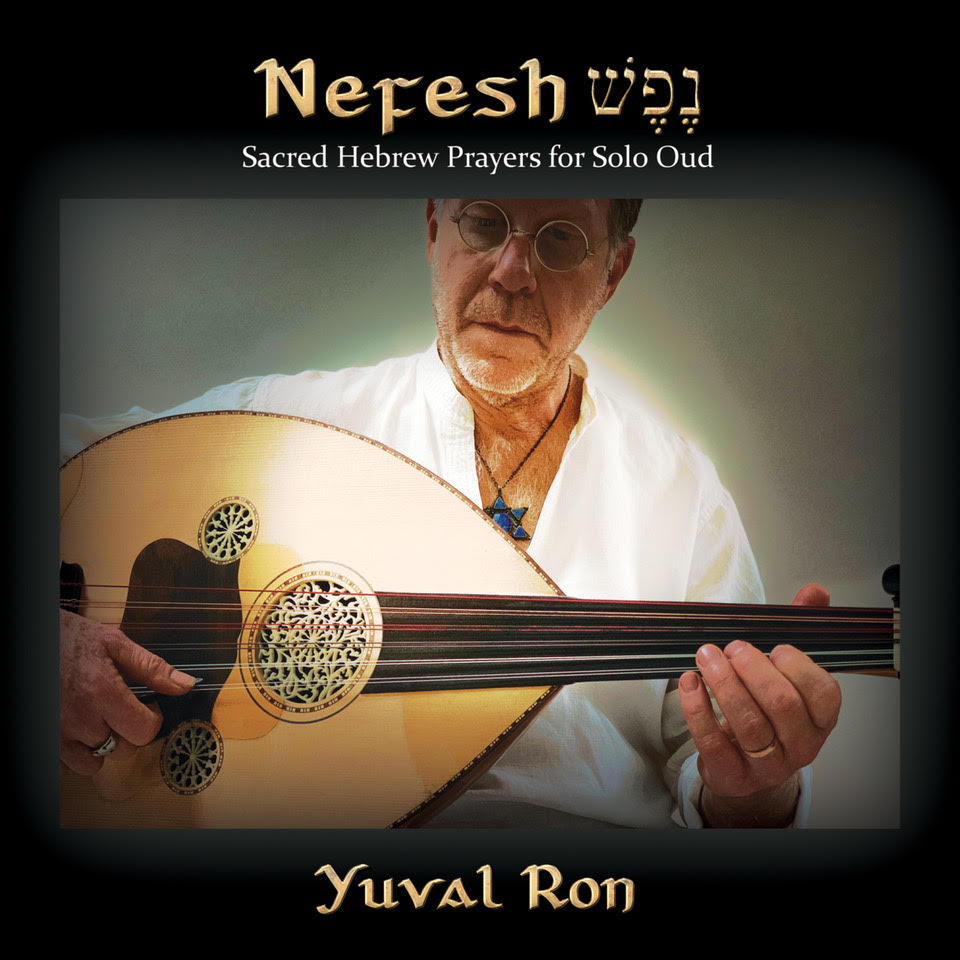Review of Yuval Ron’s New Album: Nefesh

Yuval Ron, the celebrated musician and performer, is a scientist of music, truly speaking. He does so much preparation, research, collaboration, and goes into the depth of various genres that you feel pleasantly refreshed every time you hear a new composition from him. I have had the privilege of listening to some of his work and write about it, and his new offering, Nefesh, a scintillatingly intimate solo-album, is nothing short of a jewel.
Played on the historic and richly-endowed string instrument, Oud, this album takes you on a Jewish journey of prayer and reverence, in the most enchanting style. The dexterity of this old instrument, whose sounds you will find matching in the modern Indian Sarod and acoustic guitar, lets you dive deep into your inner being, and strike a rare conversation.

Album Name: Nefesh
Artist Name: Yuval Ron
Total Time: 36:40
The album has seven tracks ranging in length from above two minutes to the longest one going above nine minutes.
Even if your ears are not exposed to the middle-eastern sounds, and you previously hadn’t heard any Jewish sacred music (like me), you will still be able to appreciate the depth and the sheer beauty of this album fully. The way it establishes an intimate connection with you right from the very first plucking of the strings of the Oud, you will notice that you are unable to move away from it.
“Ken Bakodesh” gives you the taste of what you can expect in the album. The lilting sounds and the bass effect of the string are palpable. Though the Oud is played with a plectrum, it allows an able musician to get the speed like a fingerstyle guitar. The listener obviously is spellbound by these movements.
With “Halelu”, Yuval takes you on a journey that fuses the Sufi-Qawaali and Jewish-American style. The tonality and clarity of the recording sound give you a feeling as if you are sitting live, listening in-person. The loops and the vibrato played are truly mesmerizing.
“Avinu Malkeinu” happens to be the longest song on the album, and it really is a treat for listeners who like the raw, virgin, and unadulterated sounds of strings. You will even prominently hear the sound of Yuval’s fingers sliding on different strings, making only the sounds and not any musical notes. I wonder what pain and sensation he might have experienced after running his fingers over these strings with such force and consistency, given that the bass strings are harder to play. If you know a little about Indian classical music, this song feels like an elaborated alaap, which often is the best part of the presentation of any raga.
The mood changes a bit with “Adon Haselichot”, as it takes you to the traditional Iraqi-Jewish style. Though the song happens to the smallest one, it opens up like a flower with jubilation and vibrancy. In the later part of the song, you will notice it begins to sound like a nomadic dance song, sung in groups sitting across a bonfire.
The next song, “Hatikva” a Jewish poem and the national anthem of Israel, is again a reflection of the richness and depth of the culture.
Returning again to the traditional Iraqi-Jewish style, this vocal rendition “Yonat Rechokim” is a beautiful story of an injured bird, which is enraptured by the love, and begins to fly. Ah, how appropriately it translates to one’s soul, which rises above everything once it’s touched by the love.
“Ya Ribon Olam” is a beautiful ode to the divine. Lyrical and dynamically moving in graceful steps.
One thing that I continuously kept feeling while listening to every song is the singular intimacy it offered me–shutting away any other sound and effect, it felt like a deeply personal offering to the divine. Obviously, it became hallowed instead of simple relaxation or pastime. Ideal for times like these, when physical, mental and spiritual upheaval is confusing the minds across the globe.
The way Yuval has been able to bring forth the beauty and power of sound is awe-striking. I haven’t heard too many albums that offer such a rich, soul-stirring experience.
The album is for the seekers, the hopefuls, the sensitives–truly, a sacred gift!
| Track Name | Duration |
| Ken Bakodesh – Traditional East-European Jewish | 03:48 |
| Halelu – Traditional Sufi-Qawwali/ Jewish-American | 04:35 |
| Avinu Malkeinu – Traditional East-European Jewish | 09:12 |
| Adon Haselichot – Traditional Iraqi-Jewish | 02:39 |
| Hatikva – Traditional East-European | 06:37 |
| Yonat Rechokim – Traditional Iraqi-Jewish* | 05:15 |
| Ya Ribon Olam – Traditional Iraqi-Jewish | 04:34 |

 Album Review—Inner Sanctum
Album Review—Inner Sanctum  Album review—Back To My Roots
Album review—Back To My Roots  Album Review—Days of Gypsy Nights
Album Review—Days of Gypsy Nights  Album Review—Open by Stephen Wallack
Album Review—Open by Stephen Wallack